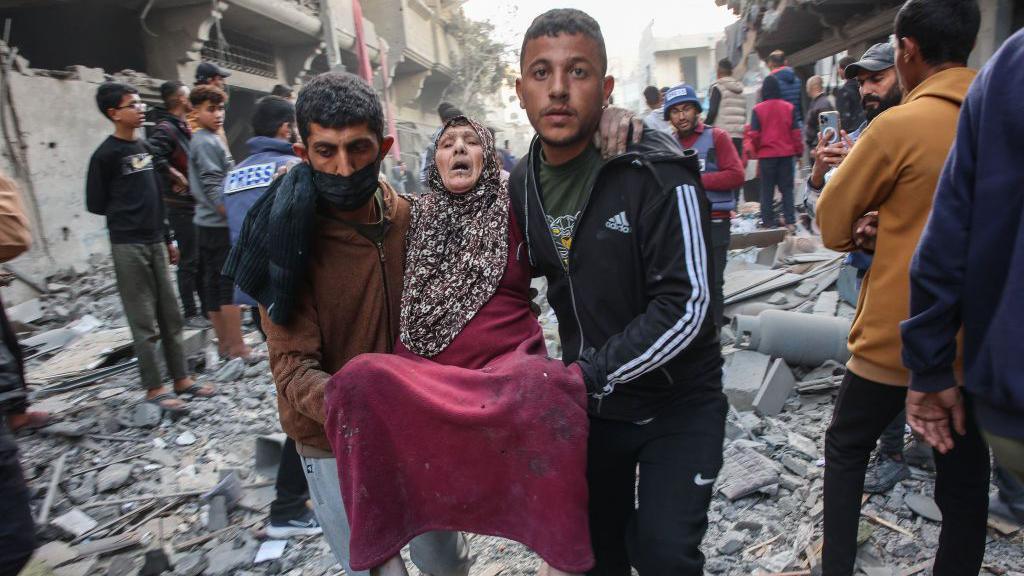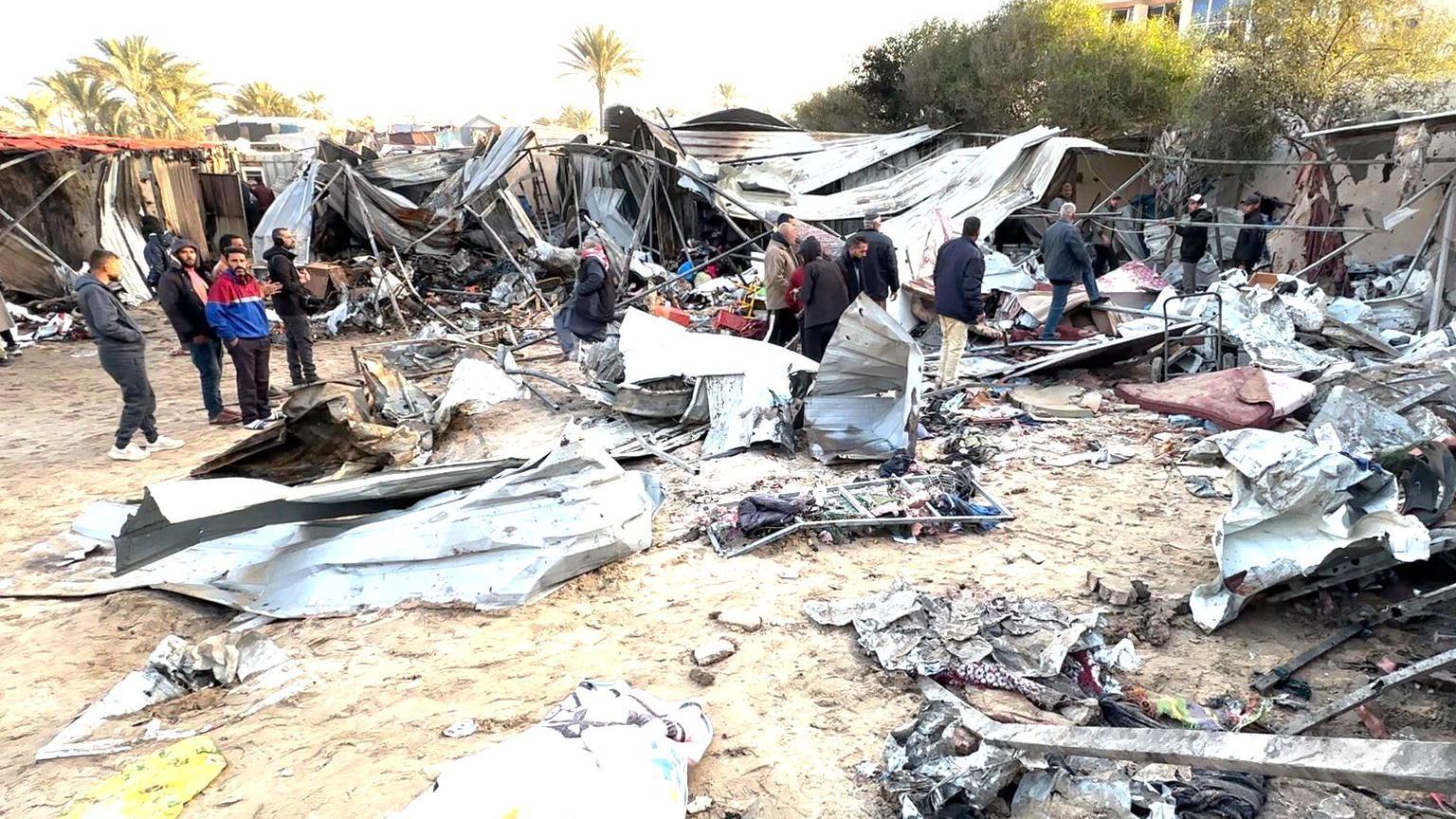Amnesty accuses Israel of genocide against Palestinians in Gaza

Israel insists that it is acting fully in accordance with international law in Gaza
- Published
Amnesty International has accused Israel of committing genocide against Palestinians in the Gaza war, which Israel strongly denies.
The UK-based human rights group said its conclusion was based on “dehumanising and genocidal statements” by Israeli officials, digital images and witness testimony and must serve as “a wake-up call” to the international community.
Israel’s foreign ministry described the 295-page report, external as “entirely false and based on lies”, while the Israeli military said the claims were “entirely baseless and fail to account for the operational realities” it faces.
In the past day, meanwhile, local medics say at least 50 Palestinians have been killed in Israeli strikes in Gaza.
The biggest number of people were killed in the al-Mawasi tent camp for displaced people, where Israel says it was targeting Hamas operatives.
Has Israel taken enough action to prevent alleged incitement to genocide?
- Published27 August 2024
What did ICJ ruling mean in South Africa's genocide case against Israel?
- Published17 May 2024
What is the genocide case against Israel?
- Published24 May 2024
Amnesty says that its research over months “has found sufficient basis to conclude that Israel has committed - and is continuing to commit - genocide against Palestinians”.
The 1948 Genocide Convention, enacted following the mass murder of Jews in the Nazi Holocaust, defines genocide as “acts committed with intent to destroy, in whole or in part, a national, ethnical, racial or religious group”.
Agnès Callamard, Amnesty’s secretary general, said Israeli actions “include killings, causing serious bodily or mental harm and deliberately inflicting on Palestinians in Gaza conditions of life calculated to bring about their physical destruction".
“Month after month, Israel has treated Palestinians in Gaza as a subhuman group unworthy of human rights and dignity, demonstrating its intent to physically destroy them,” she continued.
The report by the global campaign group comes as the UN’s top court, the International Court of Justice at The Hague, continues to examine allegations by South Africa that Israel is committing genocide in Gaza.
Israel has called the case "wholly unfounded" and based on "biased and false claims".
Responding to the allegations by Amnesty, Israel’s foreign ministry spokesperson, Oren Marmorstein, described the human rights group as a “deplorable and fanatical organisation”.
“The genocidal massacre on 7 October 2023, was carried out by the Hamas terrorist organisation against Israeli citizens,” he stated, adding that Israel as acting in self-defence and “fully in accordance with international law".
The Israeli military said it was “actively working to dismantle Hamas’ military infrastructure” in Gaza and that it “takes all feasible measures to mitigate harm to civilians during operations".
About 1,200 people in southern Israel, mostly civilians, were killed during the Hamas-led attacks 15 months ago, which triggered the Gaza war.
Since then, at least 44,532 people have been killed in Gaza, mostly civilians, according to the Hamas-run health ministry, whose figures are seen as reliable by the UN.

Medics said 20 people were killed in an Israeli air strike on a tented camp in al-Mawasi on Wednesday night
In the past day, Israel has continued to carry out attacks across the length of the Palestinian territory.
At least 23 people were killed and many more wounded in an air strike on a camp for displaced people in al-Mawasi in Khan Younis. Social media video shows residents battling fires overnight.
At the nearby Nasser Hospital, a local BBC cameraman filmed the arrival of the wounded, including blood-stained children and a disabled man. The bodies of two small children were among the dead brought wrapped up in blankets.
Israel’s military said its attack targeted senior Hamas operatives acting in what it considers a humanitarian zone. “Following the strike, secondary explosions were identified, suggesting the presence of weaponry in the area,” it said in a statement.
It said it had taken steps “to mitigate the risk of harming civilians” and accused Hamas of using civilians “as human shields for terrorist activity".
On Thursday, BBC footage showed people picking through the mangled wrecks of shacks and piles of ash.
“The strike hit us without any warning and did this big massacre,” Mohammed Abu Shahli said. “The people here are refugees from different places - from Rafah and the north. They came to a place they thought was safe.”
His head bandaged, Abdul Rahman Jamaa said seven members of his family were killed including his father and three brothers.
He told the BBC: “There are no protected safe areas as the Israelis say. These are all lies. May God protect us.”